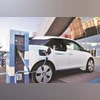The government’s new electric vehicle (EV) policy announced in March this year, which offers duty concessions to companies investing in domestic manufacturing, has received a lukewarm response, with only one European car maker expressing interest, and even that with a stipulation, as reported by The Times of India.
Notably, Tesla, a primary focus of the policy, has not shown interest yet as it reconsiders its plans in India due to global challenges.
Vietnamese car manufacturer Vinfast is reportedly reconsidering its investment linked to the new EV policy and may opt for straightforward local manufacturing instead. Initially optimistic about the policy offering subsidised import duties, Vinfast now believes it would be more advantageous to produce cars domestically, the national-daily claimed.
“The company believes it is more practical to manufacture cars at its upcoming Tamil Nadu factory rather than navigate the complex process of applying for and qualifying for the EV policy benefits for a limited number of cars,” a source cited in the report stated.
Ministry’s efforts
The Ministry of Heavy Industries (MHI), responsible for automotive industry matters, has conducted one round of consultations with carmakers but has not yet secured significant commitments.
The ministry is planning another round of discussions before finalising the policy guidelines and opening the application process. “We also intend to issue detailed guidelines on the policy, investment requirements, and other modalities to clarify how companies can qualify for benefits under the scheme,” the national daily reported.
Why are foreign carmakers apprehensive about the EV policy?
The auto industry has shown reluctance to commit investments under the new electric vehicle scheme, announced in March, which requires at least $500 million in investments from companies while offering a highly subsidised import duty of 15 per cent for about 8,000 cars annually.
More From This Section
Some German companies, including the Volkswagen Group, which owns luxury brands like Audi, Porsche, and Lamborghini, are considering the policy, the report added.
Despite initial discussions with the Ministry of Commerce and Industry, Tesla has not yet indicated any progress. Tesla's founder Elon Musk, who was scheduled to visit India earlier this year, cancelled at the last minute, suggesting that he wants all issues surrounding his companies resolved first. Meanwhile, Tesla is facing demand and sales challenges in its home market and China.
Officials remain hopeful about making progress in talks with Tesla, but current indications do not suggest that India will see a lower-cost Tesla car manufactured locally any time soon, according to sources cited by the report.
What is the new EV policy?
On March 15 this year, the Indian government approved a Rs 41.5 billion ($500 million) EV Policy, offering various incentives to attract global EV investments and establish India as a key manufacturing hub for advanced EVs.
The policy aims to provide Indian consumers with access to advanced EV models, expand the ‘Make in India’ initiative, lower production costs, reduce oil imports, decrease urban air pollution, and promote a competitive domestic auto manufacturing industry.
Key requirements include a minimum investment of Rs 41.5 billion, with no upper limit, and a three-year timeline to establish manufacturing facilities and commence commercial EV production. Companies must achieve 25 per cent domestic value addition (DVA) by the third year and 50 per cent by the fifth year. A customs duty of 15 per cent will apply to completely knocked down (CKD) units with a minimum cost, insurance, and freight (CIF) value of $35,000 and above for five years, contingent on setting up manufacturing facilities within three years.
The duty exemption will be limited to the investment made or Rs 64.84 billion, whichever is lower, with a maximum import limit of 40,000 EVs at a rate of no more than 8,000 per year for investments of $800 million or more. Unused annual import limits can be carried over. Investment commitments must be secured by a bank guarantee, which will be invoked in case of non-compliance with DVA and minimum investment criteria.
)